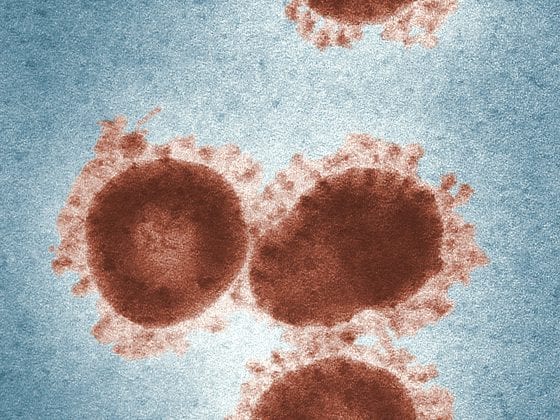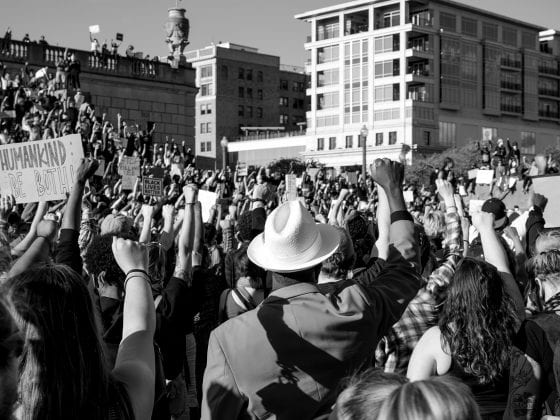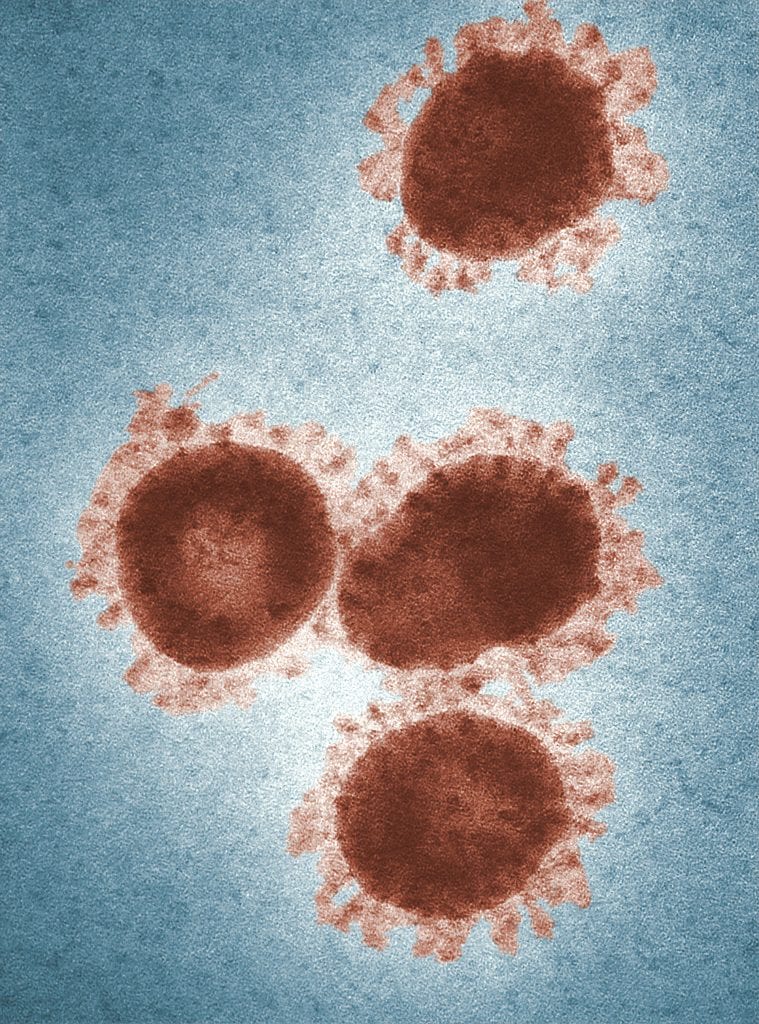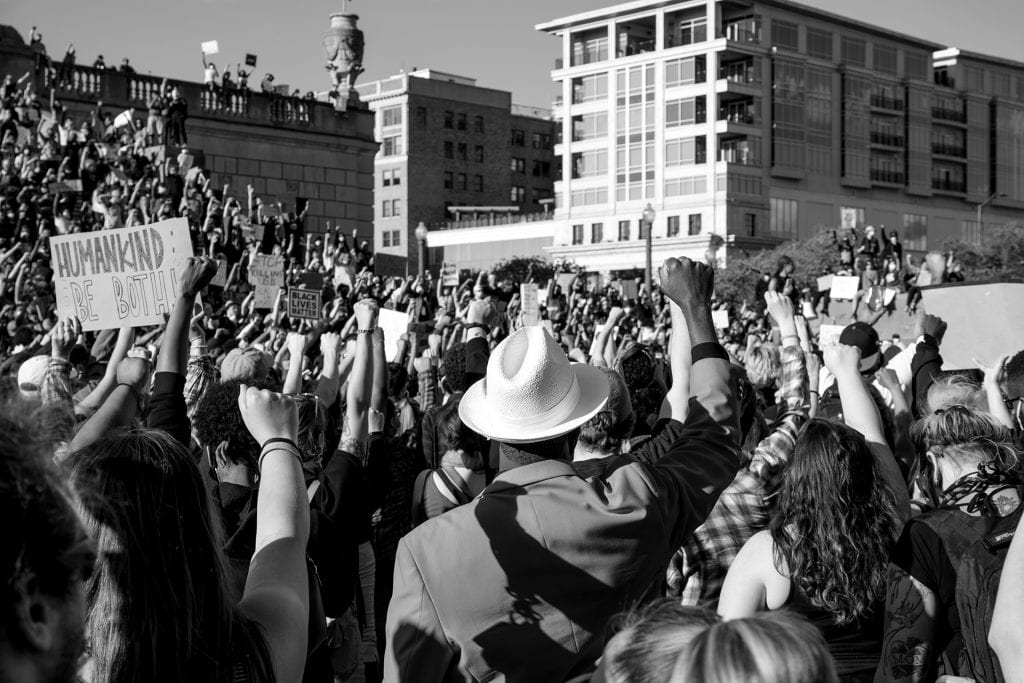Interdependence is literally hardwired into our neural networks. Explore the resources provided below to learn more about how our innate desire to understand one another and build vast social networks can and should enable us to affect change at the global level on issues ranging from the Covid-19 pandemic to the climate crisis — and how you can take action now.

On Interdependence, Social Interaction and Health
Scholars have demonstrated the immense importance of social interactions to the human psyche, finding that social pain impacts our brains in the same way that physical pain does…
On Interdependence, Pandemics, and a Necessary Global Response to Covid-19
Our action, or lack thereof, in addressing this crisis will lead to the suffering of millions of people all over the world.…




On Environmental Injustice, Race, and Public Health
COVID-19 has also illuminated and ignited further action and conversation about the relationship between environmental injustice, race, and public health…

On Interdependence, Social Interaction and Health
Scholars have demonstrated the immense importance of social interactions to the human psyche, finding that social pain impacts our brains in the same way that physical pain does…



On Interdependence, Pandemics, and a Necessary Global Response to Covid-19
Our action, or lack thereof, in addressing this crisis will lead to the suffering of millions of people all over the world.…



On Environmental Injustice, Race, and Public Health
COVID-19 has also illuminated and ignited further action and conversation about the relationship between environmental injustice, race, and public health…


On Interdependence, Pandemics, and a Necessary Global Response to Covid-19
The rapid spread of Covid-19 demonstrates that viruses are not confined to a single country or landmass. Our action, or lack thereof, in addressing this crisis will lead to the suffering of millions of people all over the world. Our human biological similarities make all of us susceptible to this disease. This public health crisis can only be countered with a connected global response that recognizes our shared humanity.
WATCH
A global Pandemic Calls for Global Solutions by Larry Brilliant
The Corona Virus Explained & What You Should Do by Kurzgesagt
How the Pandemic Will Shape the Near Future with Bill Gates
Can Technology Help Build a Shock-Resistant Planet?
ARTICLES
Visualizing the History of Pandemics by Nicholas LePan
Why outbreaks like coronavirus spread exponentially, and how to “flatten the curve” by Harry Stevens
Covid-19 offers a chance to build a better world. We Must Seize It by Jamie Metzl
Resources on WHO Pandemic Preparedness
WHO checklist for influenza pandemic preparedness planning
GUIDING QUESTIONS
How does the Covid-19 pandemic compare to past pandemics?
How does the present pandemic underscore the importance of joint global action?
What actions should the global community take to address the urgent needs of the world’s most vulnerable populations during this time of crisis?
How has the Covid-19 pandemic revealed the flaws in our global system?
Take Action!


On Environmental Injustice, Race and Public Health
COVID-19 has also illuminated and ignited further action and conversation about the relationship between environmental injustice, race, and public health. With the onset of this global pandemic, the inequities from one community to another have become even more clear. Not everyone is equipped with the same social determinants of health – which is defined by the CDC as the “conditions in the places where people live, learn, work, and play” — to live a healthy life.
Notably, data detailing cases of COVID-19 have been the highest in Black and brown communities, and this is not by chance or coincidence. Racism has long been described as a public health issue, with many states and localities across the United States declaring it a public health crisis. As far as being declared at the federal level, multiple organizations have called on the Center for Disease Control and Prevention (CDC) to state racism as a national public health crisis — including the CDC’s own employees.
A Deeper Dive
The Environmental Justice movement, which began as a grassroots movement predominantly by people of color, seeks to address the inequity of environmental protections within Black and brown communities. Over the years, activists have brought attention to how racism and the environment are intertwined. Environmental racism is a concept which defines the relationship between environmental injustice and race, and has been defined by the Green Action Organization as “the disproportionate impact of environmental hazards on people of color.”
To learn more about the history of the Environmental Justice movement, environmental racism, and how this relates to public health — you can view an interactive timeline put together by the Environmental Protection Agency here, and explore the resources listed below.
WATCH
Short Videos
What is Environmental Justice? by the Natural Resources Defence Council (NRDC)
What is Environmental Racism? by AJ+ (Al Jazeera Media Network)
READ
Articles
When a Virus Exposes Environmental Justice by the Natural Resources Defence Council (NRDC)
The Fullest Look Yet at the Racial Inequity of Coronavirus by Richard A. Oppel Jr., Robert Gebeloff, K.K. Rebecca Lai, Will Wright and Mitch Smith
What Do Coronavirus Racial Disparities Look Like State By State? by Maria Godoy and Daniel Wood
COVID-19’s Disparate Impacts Are Not a Story about Race: They’re a story about racism by Jennifer Tsai
States are Calling Racism a Public Health Crisis. Here’s What That Means” by Harmeet Kaur and Skylar Mitchell at CNN Health
State and Local Efforts to Declare Racism a Public Health Crisis by Betsy Lawson and Dawn Hunter at The Network for Public Health Law
Environmental Racism Has Left Black Communities Especially Vulnerable to COVID-19 by Casey Berkovitz at The Century Foundation
Unequal Impact: The Deep Links Between Racism and Climate Change an interview between Beth Gardiner and Activist Elizabeth Yeampierre
Why Racism, Not Race, is a Risk Factor for Dying of Covid-10
Structural Racism, Social Risk Factors, and Covid-19 — A Dangerous Convergence for Black Americans
Climate Change and Social Inequality by S. Nazrul Islam and John Winkel
Books
Unequal Protection: Environmental Justice and Communities of Color by Robert D. Bullard
Engage, Connect, Protect: Empowering Diverse Youth as Environmental Leaders by Angelou Ezeilo
As Long as Grass Grows: The Indigenous Fight for Environmental Justice, from Colonization to Standing Rock by Dina Gilio-Whitaker
Climate Change From the Streets by Michael Méndez
Environmental Justice in a Moment of Danger by Julie Sze
Indigenous Environmental Justice edited by Karen Jarratt-Snider and Marianne O. Nielsen
Poisoned Water: How the Citizens of Flint, Michigan, Fought for Their Lives and Warned the Nation by Candy J. Cooper with Marc Aronson
Take Action!
The link between systemic racism and public health is clear – and there is an urgent need for people like you to get involved. To learn more about policies regarding our environment, and to advocate for the protection of people’s health and communities, check out the organizations below and take action today.


On Interdependence, Social Interaction and Health
A plethora of studies in the field of social cognitive neuroscience found that humans rely heavily on social interactions to reduce stress and sustain happiness. Other scholars have demonstrated the immense importance of social interactions to the human psyche, finding that social pain impacts our brains in the same way that physical pain does. Discover more about the importance of social interaction to your health below.
INTERDEPENDENCE
Interdependence amongst humans is a biological necessity for us, as it improves our health outcomes, our sense of well-being, and helps us live longer. The videos below investigate the importance of social interactions and understanding among humans as well as the impact of these connections on public health.
HEALTHY SOCIAL INTERACTION
Experience the impacts of healthy social interaction first-hand:
BOOKS AND ARTICLES
Below are some books and articles that will help you explore and discover the connection between our biological make-up and human interdependence.
Books
Social: Why Our Brains Are Wired to Connect by Matthew Lieberman
The Development of Social Engagement: Neurobiological Perspectives by Peter J. Marshall and Nathan A. Fox
Loneliness: Human Nature and the Need for Social Connection by John T. Cacioppo and William Patrick
Everyone Communicates, Few Connect: What the Most Effective People Do Differently by John C. Maxwell
Articles
Grassroots Activism: Make that Change by JoJo Swords
Social Interaction Is Critical for Mental and Physical Health by Jane E. Brody
How Casual Daily Interactions Protect Your Health by Jennifer Breheny Wallace